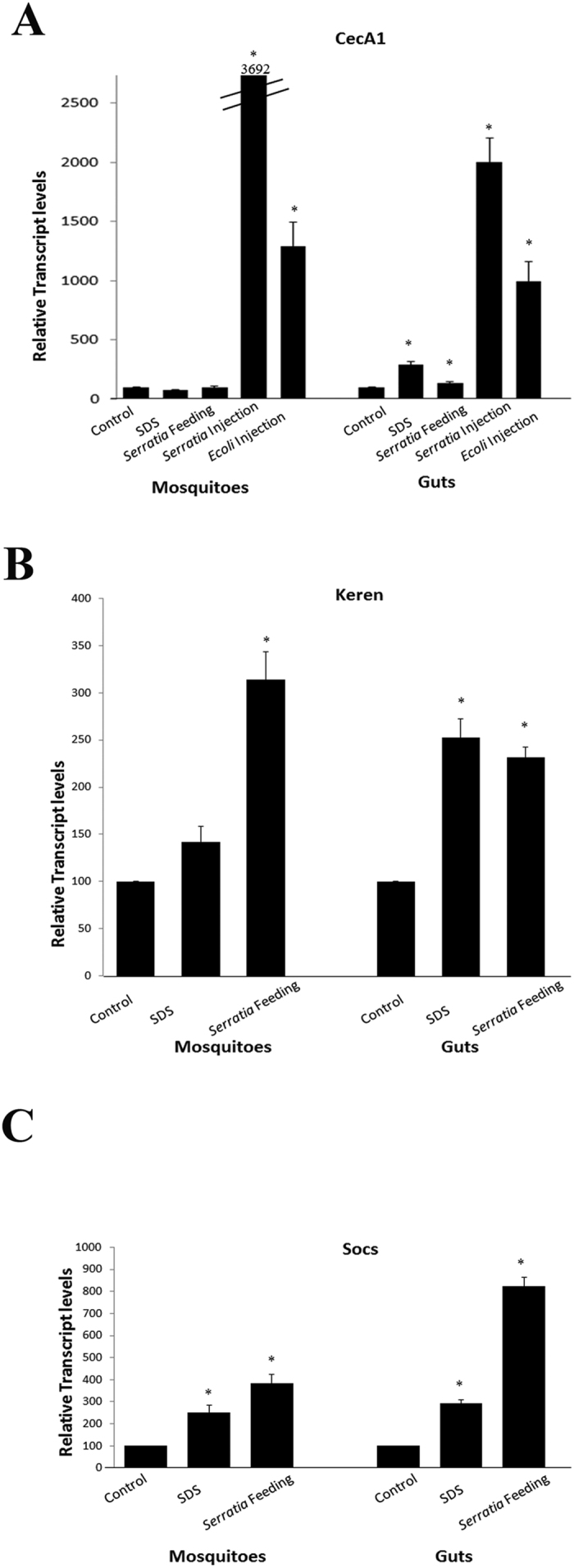Figure 5. Transcriptional levels of genes encoding CecropinA1 AMP and signaling molecules belonging to the EGFR and JAK/STAT pathways after gut damage.

Feeding Aedes mosquitoes on sucrose containing 2% SDS or a high concentration of Serratia marcescens (OD = 50) leads to a slight increase in the transcription of the antimicrobial peptide CecA1 encoding gene in the gut. However, this increase was not observed in whole insects, where the levels of AMP transcripts are highly induced only when bacteria (Serratia or E. coli) is microinjected into the mosquito body cavity causing a systemic immune response (A). Real time qPCR performed on whole mosquitoes or on dissected guts shows that feeding on Serratia results in a significantly increased transcription, both at the level of the gut and in whole animals, of the signaling molecules Keren (B) and Socs (C) that are known to regulate in Drosophila the EGFR and JAK/STAT pathways respectively. SDS feeding also led to a significant increase of Keren and Socs at the level of the gut (B and C). *P < 0.05.
